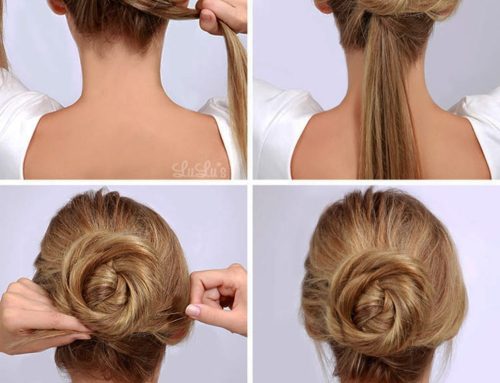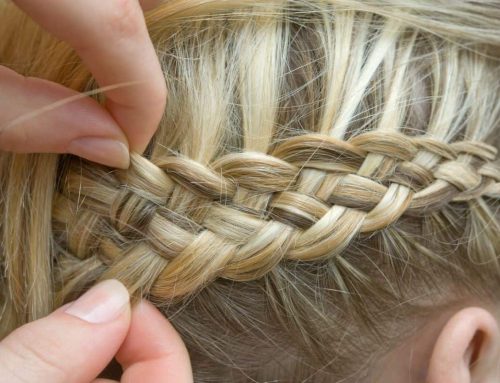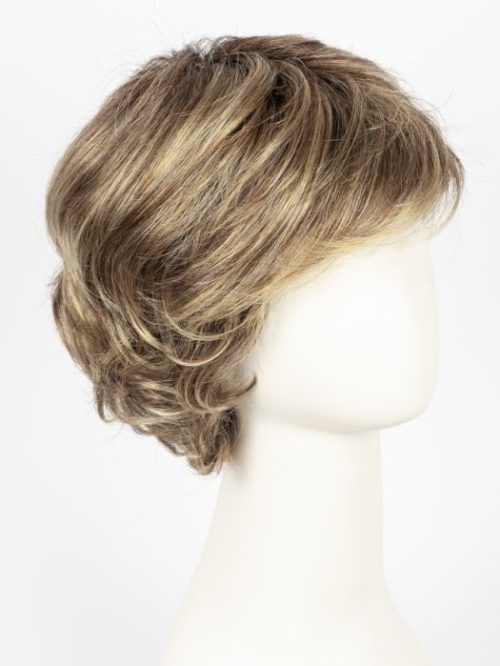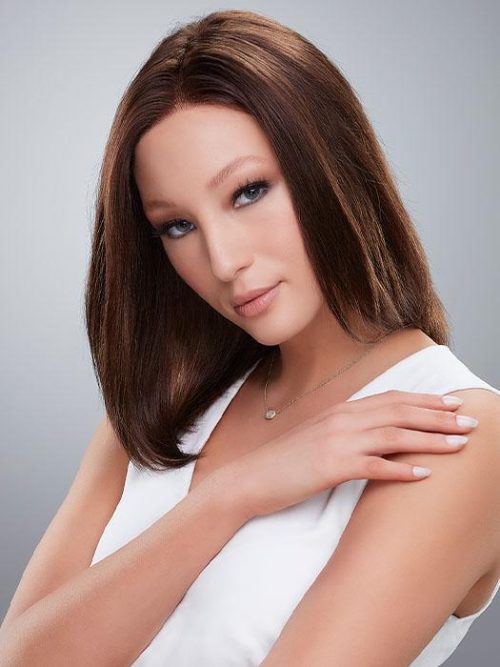Exploring Eco-Friendly Hair Care: A Guide to Sustainable Beauty
Welcome to our blog, where we delve into the realm of eco-conscious hair care. Are you prepared to embrace sustainable beauty choices that not only enhance your life but also revolutionize your hair care routine? In a world increasingly valuing environmental preservation, it’s imperative to make mindful decisions that benefit both ourselves and the planet.
In this discourse, we’ll navigate through the exciting landscape of sustainable hair care, offering insights to empower you in making positive contributions without compromising on style or efficacy. If you’re eager to greenify the beauty industry, your hair care regimen serves as an accessible starting point.
Understanding Eco-Chic Haircare: Prioritizing Sustainability
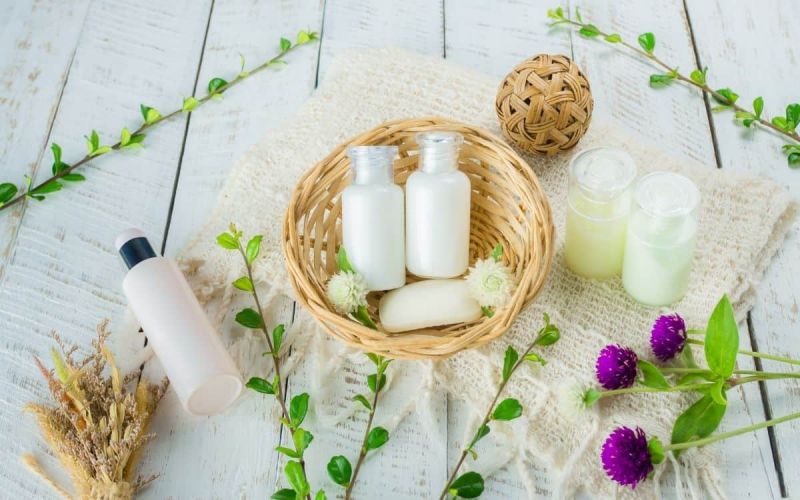
Eco-Chic Haircare, also referred to as Sustainable Haircare, revolves around the utilization of products derived from natural resources. These products prioritize the well-being of individuals and the environment, eschewing the use of detrimental chemicals. Brands adhering to this ethos champion cruelty-free practices, abstaining from animal testing and animal-derived ingredients. Moreover, they opt for environmentally conscious packaging, utilizing recyclable or biodegradable materials. Encouragement is given to water-saving measures, such as shorter showers or waterless alternatives. Additionally, these brands strive to incorporate renewable energy sources and design products with prolonged lifespans to minimize waste. By integrating such products into your beauty regimen, you can embrace eco-friendly practices while nurturing healthy and fashionable hair.
The Case for Embracing Sustainable Hair Care Practices

Embracing a sustainable approach to hair care yields myriad benefits, encompassing both personal and environmental advantages. Here are some noteworthy merits:
-
Enhanced Hair Health: Sustainable hair products often boast natural and organic ingredients that are gentle on the hair, steering clear of harsh chemicals prevalent in conventional counterparts. This fosters healthier hair maintenance.
-
Optimized Scalp Health: Formulations of sustainable hair products often prioritize pH balance and scalp nourishment, mitigating issues such as dryness, itchiness, and dandruff.
-
Allergy and Sensitivity Consideration: By avoiding common allergens and irritants, sustainable products cater to individuals with sensitive skin or allergies, offering relief from potential reactions or irritations.
-
Tailored Solutions: Sustainable hair care encourages a personalized approach, addressing individual concerns and needs through a diverse array of specialized options.
-
Holistic Well-being: Aligned with overall wellness, sustainable hair care minimizes exposure to harmful substances, fostering a safer environment for individuals and the planet alike.
-
Economic Efficiency: While initial costs may be marginally higher, sustainable hair products typically provide long-term value due to their high-quality formulations and concentrated nature, necessitating less frequent repurchases.
-
Environmental Stewardship: Opting for eco-friendly hair care options aids in mitigating environmental harm, manifested through responsible sourcing, packaging waste reduction, water conservation, energy efficiency, and fostering ethical manufacturing practices.
-
Ethical Integrity: Commitment to cruelty-free practices ensures that products are not tested on animals, thereby upholding ethical standards and animal welfare.
-
Promoting Sustainable Practices: Supporting companies prioritizing fair trade, ethical sourcing, and environmentally conscious manufacturing processes fosters a demand for eco-friendly practices within the industry.
-
Contribution to Sustainability: Adopting sustainable hair care constitutes a tangible contribution to global sustainability efforts, manifesting through conscious choices that reduce waste, conserve resources, and safeguard the environment.
In summation, embracing a sustainable hair care regimen not only nurtures healthier hair and fosters personal well-being but also champions environmental preservation and ethical integrity, effectuating a positive impact on global sustainability endeavors.
Transitioning to a Sustainable Hair Care Routine: A Comprehensive Guide
Transitioning to a sustainable hair care routine necessitates embracing eco-friendly alternatives that uphold the well-being of both your hair and the environment. Here’s a comprehensive guide on how to embark on this journey:
Step 1: Embrace Organic and Natural Hair Products
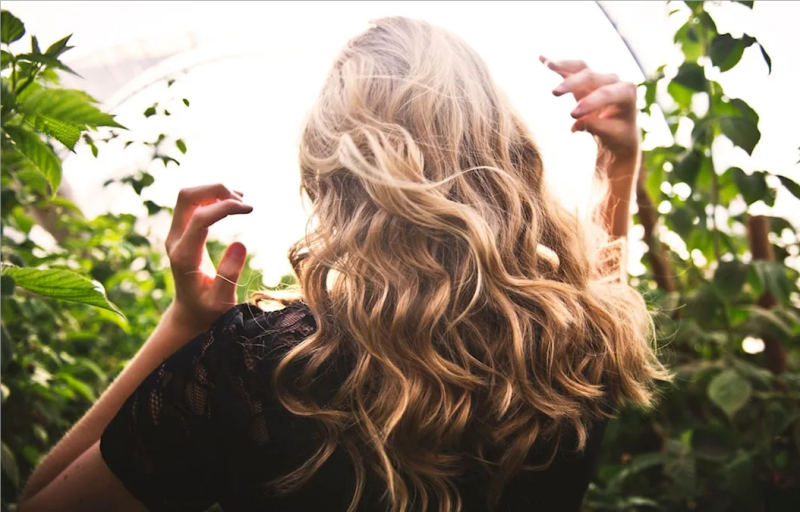
When selecting hair products, prioritize natural options to reap numerous benefits. Consider the following factors:
-
Transparency in Ingredients: Natural hair products typically offer clear labeling of ingredients, enabling informed decisions and avoidance of potentially harmful chemicals or synthetic additives.
-
Elimination of Harsh Chemicals: Unlike conventional counterparts containing sulfates, parabens, and artificial fragrances, natural products exclude such harsh elements, fostering gentler treatment for your hair and scalp.
Exploring the Benefits of Eco-Friendly Hair Products
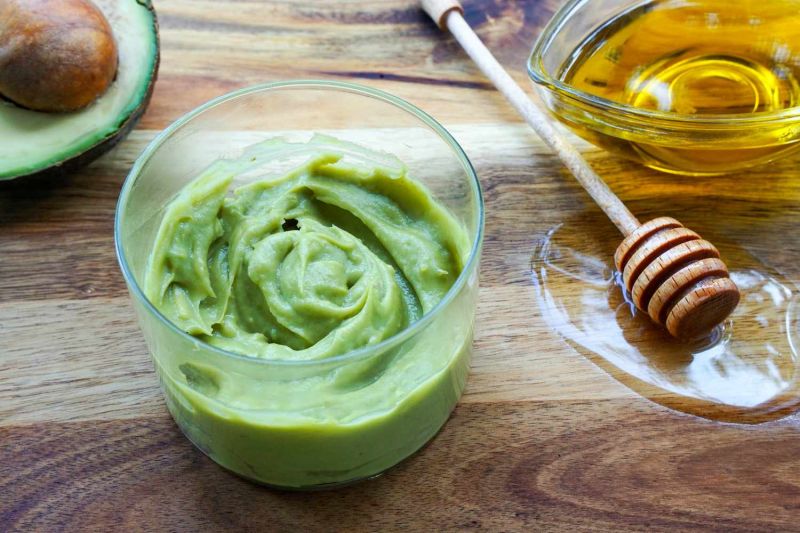
When it comes to nourishing your hair, eco-friendly products offer a plethora of advantages. From utilizing plant-based ingredients to supporting sustainable practices, these products align with both your hair care needs and environmental consciousness.
-
Nourishment from Nature: Eco-friendly hair products harness the power of natural elements like aloe vera, coconut oil, argan oil, and shea butter, infusing your hair with essential nutrients and vitamins. These ingredients moisturize, strengthen, and enhance shine without causing harm or damage.
-
Environmental Responsibility: Opting for eco-friendly hair products extends beyond personal care—it’s a choice that supports sustainable farming methods and reduces the introduction of harmful chemicals into the environment. Biodegradable formulations ensure a smaller ecological footprint compared to traditional alternatives.
-
Consideration for Allergies: If you have sensitive skin or allergies, eco-friendly hair products provide a safer option. With fewer allergens and irritants, these products minimize the risk of adverse reactions, ensuring a gentle yet effective hair care experience.
-
Commitment to Cruelty-Free Practices: Natural hair care brands prioritize ethical integrity by pledging to be cruelty-free. This means their products undergo no animal testing, aligning with ethical standards and your personal values. Look for certifications like Leaping Bunny or PETA’s cruelty-free logo to ensure your choice reflects your principles.
Hair care is not one-size-fits-all; each individual’s needs vary. By opting for products derived from natural and renewable resources, free from harmful chemicals, we contribute to pollution reduction, resource conservation, and personal health protection.
Embrace DIY Hair Treatments for a Sustainable Routine

Crafting your own hair treatments presents a cost-effective and eco-friendly alternative, minimizing packaging waste while nourishing your hair naturally. Here are some simple DIY recipes using common household ingredients:
Coconut Oil Deep Conditioning Mask
Ingredients: 2 tablespoons of coconut oil (adjust quantity based on hair length), optional: a few drops of essential oil for fragrance (e.g., lavender or rosemary).
Instructions: Melt coconut oil and apply it evenly to damp hair, focusing on the ends. Leave for 30 minutes or overnight for intensive treatment, then rinse and shampoo as usual.
Avocado and Banana Hair Mask
Ingredients: ½ ripe avocado, ½ ripe banana.
Instructions: Mash avocado and banana until smooth. Apply to damp hair, leave for 20-30 minutes, then rinse and shampoo.
Honey and Yogurt Hair Mask
Ingredients: 2 tablespoons of honey, 4 tablespoons of plain yogurt.
Instructions: Mix honey and yogurt, apply to clean, damp hair, leave for 20-30 minutes, then rinse and condition if desired.
Apple Cider Vinegar Rinse
Ingredients: 1 part apple cider vinegar, 3 parts water.
Instructions: Dilute vinegar with water, apply to scalp and hair after shampooing, massage, and rinse thoroughly.
Before using any homemade treatment, perform a patch test to ensure compatibility with your skin.
Opt for Sustainable Styling Tools and Accessories
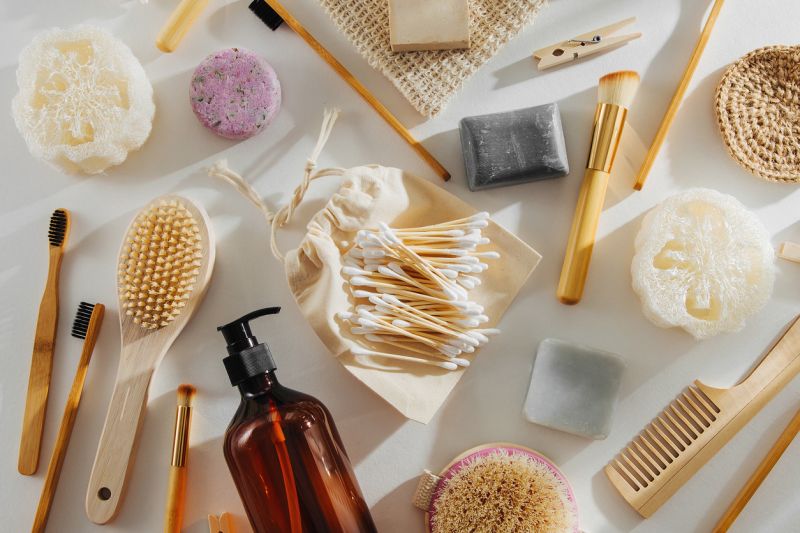
Reducing heat styling and opting for sustainable alternatives can significantly lessen your hair care routine’s environmental impact. Consider the following eco-friendly options:
-
Bamboo Hairbrushes: Opt for brushes made from sustainable bamboo, a renewable resource with minimal environmental impact.
-
Wooden Combs: Choose combs crafted from natural materials instead of plastic for durability and eco-friendliness.
-
Recycled or Biodegradable Hair Ties: Look for ties made from recycled materials or biodegradable alternatives like cotton or bamboo.
-
Metal Hair Clips: Replace plastic clips with recyclable metal alternatives for longevity and eco-consciousness.
-
Natural Fiber Towels: Swap synthetic towels for those made from cotton or bamboo, promoting absorption and sustainability.
-
Eco-Friendly Styling Tools: Seek out energy-efficient heat styling tools with minimal packaging and reduced environmental impact.
-
Sustainable Packaging: Opt for brands prioritizing recyclable or minimal packaging to further reduce waste.
-
Second-hand or Vintage Accessories: Consider shopping for pre-owned hair accessories to extend their lifespan and reduce demand for new products.
Prioritize durability, recyclability, and materials with low environmental impact when selecting sustainable alternatives, contributing to a more eco-friendly approach to hair care.
Practice Water Conservation in Your Hair Care Routine
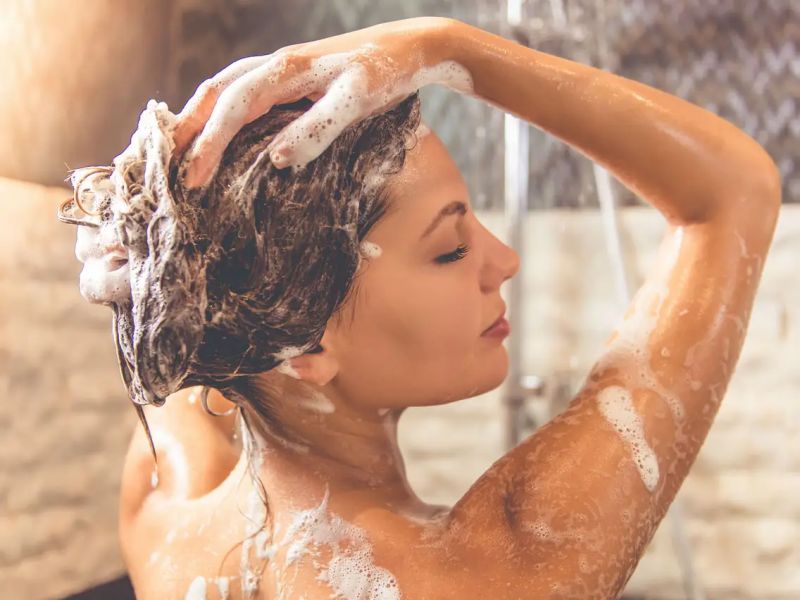
Conserving water during your hair care routine is crucial for minimizing environmental impact. Follow these tips to save water while maintaining healthy hair:
- Limit Shower Time: Shorten showers to reduce water usage, ensuring efficiency during your sustainable hair care routine.
Water Conservation Techniques for Eco-Friendly Hair Care
Conserving water is crucial in minimizing environmental impact while maintaining healthy hair. Here are practical tips to reduce water usage in your hair care routine:
-
Install Low-Flow Showerheads: Switching to low-flow showerheads preserves water without compromising water pressure. These fixtures consume less water per minute, leading to significant water savings.
-
Minimize Water Use: Turn off the water while applying shampoo and conditioner to minimize unnecessary water flow. Only turn it on when rinsing your hair.
-
Embrace Dry Shampoo: Dry shampoos offer a waterless alternative to refresh and absorb excess oil from your hair. Available in powder or spray form, they extend time between washes, reducing water-intensive routines.
-
Wash Hair Less Frequently: Consider washing your hair every other day or every few days, allowing your scalp to maintain natural oils and reducing water-intensive washing.
-
Utilize Water-Efficient Tools: Seek out hair care products designed to save water. Certain shower caps prevent water from entering while washing your body, allowing you to skip rinsing hair products. Additionally, leave-in conditioners can be used sparingly to minimize water usage.
-
Collect and Recycle Water: Place a bucket or container to collect cold water while waiting for the shower to warm up. This collected water can be repurposed for tasks like watering plants or flushing toilets, minimizing waste.
-
Avoid Unnecessary Water Waste: Turn off the faucet while brushing teeth or applying hair products. Leaving water running during these activities leads to significant water wastage over time.
-
Optimize Water Temperature: Cooler showers with warm water consume less energy from your hot water heater, often resulting in shorter showers. Taking cooler showers conserves energy, preserves water, and promotes healthier hair.
By implementing these detailed water conservation measures, you contribute to water conservation efforts while maintaining hair health. Remember, every small change counts!
Eco-Friendly Practices in Salons and by Professionals
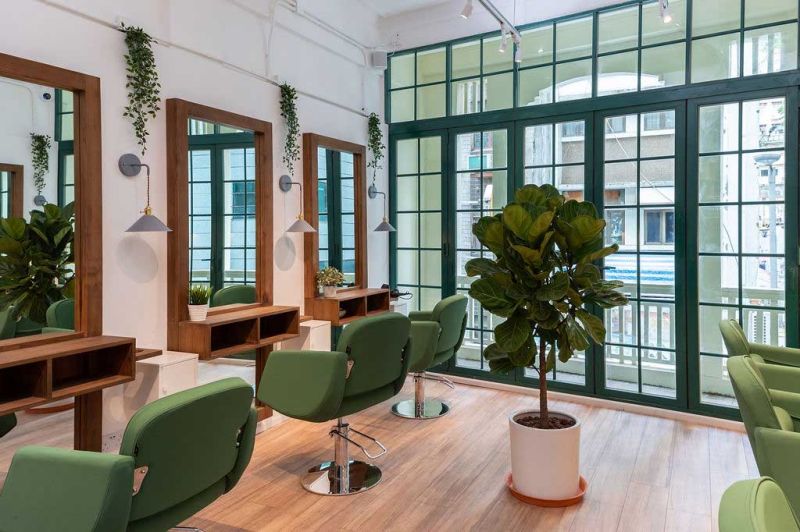
The rise of eco-friendly salons and professionals reflects a growing awareness of environmental impact within the beauty industry. These entities prioritize sustainability, waste reduction, and the use of less harmful products for both the planet and human health. Here’s what sets them apart:
-
Adoption of Sustainable Practices: Eco-friendly salons integrate sustainable practices into their operations, utilizing energy-efficient lighting and appliances, conserving water, and recycling materials whenever possible. Some may even invest in renewable energy sources like solar panels to power their establishments.
-
Preference for Non-Toxic Products: Eco-conscious hair experts utilize haircare, skincare, and beauty products made from natural, non-toxic ingredients, avoiding chemicals such as formaldehyde, parabens, sulfates, and synthetic fragrances. They opt for organic, plant-based, cruelty-free, and biodegradable alternatives.
-
Efforts to Reduce Water Usage: Recognizing water as a precious resource, eco-friendly salons take measures to minimize water consumption. This may include using low-flow showerheads and faucets, encouraging clients to skip unnecessary hair washes, and employing water-saving techniques during treatments.
-
Commitment to Waste Reduction and Recycling: Sustainable salons strive to reduce waste by implementing recycling and composting practices. They recycle materials like plastics, paper, and glass, and compost organic waste such as hair clippings and leftover plant matter. Some participate in programs to recycle or repurpose used product packaging.
-
Focus on Education and Awareness: Eco-friendly salon professionals not only practice sustainable methods but also educate clients on environmentally friendly choices. They provide information on maintaining healthy hair and skin without compromising the environment, recommending products and practices aligned with sustainability goals.
-
Engagement in Community Initiatives: Many eco-friendly salons actively participate in community initiatives and events promoting sustainable living and environmental awareness. They collaborate with local organizations, join eco-friendly campaigns, and support green projects to contribute to a more sustainable future.
By embracing these principles, eco-friendly salons and professionals play a significant role in enhancing the sustainability of the beauty industry and preserving the environment.
Recycling and Disposal of Haircare Products
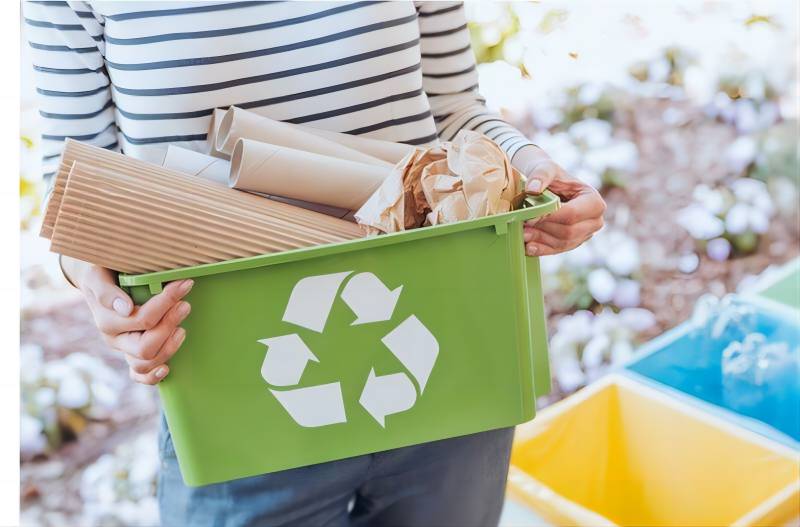
Proper recycling and disposal of haircare products are essential for minimizing environmental impact. Here are guidelines for handling different haircare items:
-
Shampoo and Conditioner Bottles: Plastic bottles can typically be recycled with other household plastic containers. Ensure they’re thoroughly rinsed before recycling. Shampoo and conditioner bars offer an eco-friendly alternative.
-
Hair Styling Product Containers: Empty containers of hair styling products made of plastic can usually be recycled after thorough cleaning.
-
Aerosol Cans: Steel or aluminum aerosol cans used for hair sprays and dry shampoos can be recycled, but check with local recycling programs for acceptance.
-
Hairbrushes and Combs: These items made of mixed materials like plastic and natural bristles can be challenging to recycle. Consider donating them to organizations that may repurpose them.
-
Hairdryers and Electrical Tools: Dispose of electrical hair tools like hairdryers and straighteners at designated e-waste collection sites to ensure proper recycling.
-
Hair Color and Dye: Due to chemical ingredients, hair dye bottles should not be poured down the drain. Dispose of them at hazardous waste collection facilities following local regulations.
By following these
guidelines, you can effectively manage the recycling and disposal of haircare products, contributing to waste reduction and sustainability efforts.
Final Thoughts
Congratulations on completing our eco-conscious haircare journey! You’re now equipped to transform your routine with sustainable choices that benefit both your hair and the planet.
Now is the perfect time to reassess your beauty routine and make it more sustainable. With the tips provided, caring for your locks in an eco-friendly manner becomes achievable without breaking the bank. Remember, small changes lead to significant differences!
Image Credit: Google, Pinterest.
